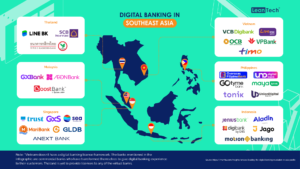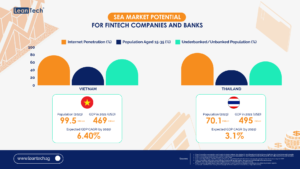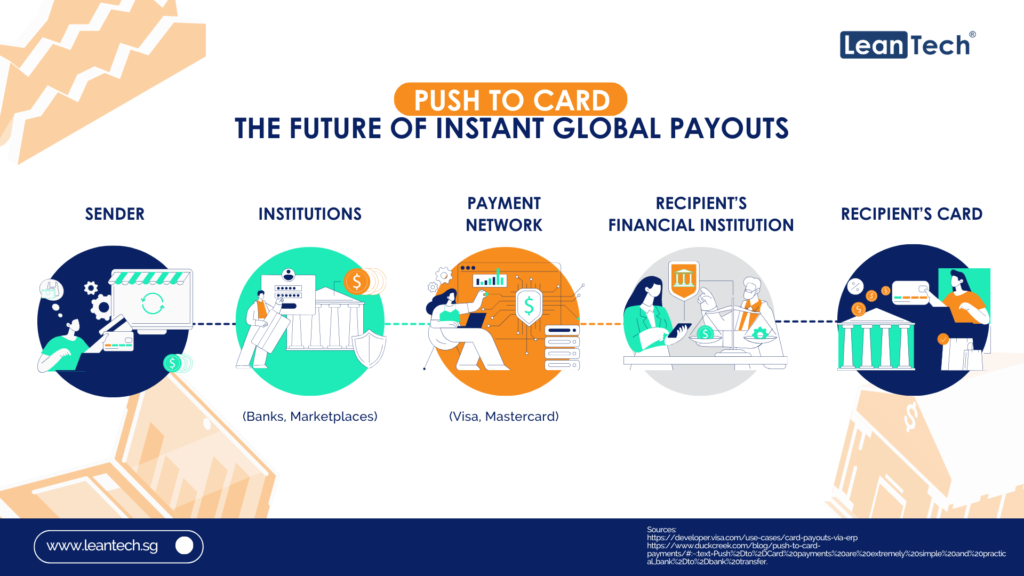Southeast Asia is currently at the forefront of a monumental shift towards digital banking, propelled by a convergence of influential factors. The rapid digitalisation prompted by the COVID-19 pandemic has significantly hastened the transformation of traditional industries such as banking and finance. Leveraging this surge in digitisation, many banks in Southeast Asia (SEA) have either formulated or are in the process of crafting digital transformation plans. Consequently, users in the region are swiftly embracing these advancements with robust adoption rates.

So, what exactly is fuelling the digital banking boom?
Southeast Asia boasts a mobile-first economy, with an impressive prevalence of smartphones among its population. This widespread adoption of smartphones forms the cornerstone for the proliferation of digital banking services, offering a convenient platform for users to access financial services anytime, anywhere. Despite economic growth, a significant portion of Southeast Asia’s population remains unbanked, lacking access to traditional banking services. Digital banks bridge this gap by providing accessible and user-friendly mobile applications, thereby fostering financial inclusion and empowering underserved communities.
Modern consumers increasingly demand seamless and personalised banking experiences tailored to their preferences. Digital banks cater to these evolving expectations by offering a myriad of innovative features such as mobile payments, instant money transfers, and intuitive online account management tools, thereby enhancing convenience and customer satisfaction. The emergence of fintech startups has disrupted the traditional banking landscape across Southeast Asia. These innovative companies collaborate with established financial institutions or launch their own digital banking platforms, driving innovation, and competition within the industry. Their agility and focus on leveraging technology have significantly contributed to the growth of digital banking in the region.
Gaining momentum in Digital Banking

Thailand
Thailand has emerged as a prominent player in the digital banking arena, propelled by several distinct factors. According to Statista, the Digital Banks market in Thailand is forecasted to witness a substantial growth in Net Interest Income, reaching US$1.87 billion by the year 2024. This is after the release of the Consultation Paper on Virtual Bank Licensing Framework by the Bank of Thailand (BOT) for public review in 2023. The Thai government actively promotes financial inclusion and innovation through supportive policies and regulatory frameworks. This conducive environment encourages the growth of digital banking and ensures that the benefits of financial technology reach a wider audience.
Moreover, according to data by Adjust, banking app downloads saw a 95% growth within the first week of January along with a 141% jump in session timings.
Vietnam
With its rapid technological advancement and dynamic demographics, Vietnam has also emerged as a frontrunner in digital banking opportunities.
Vietnam experiences one of the world’s fastest rates of smartphone adoption, providing a fertile ground for the proliferation of mobile-based digital banking solutions. The widespread availability of smartphones facilitates greater access to financial services among the population.
It also boasts a high internet connectivity rate alongside a relatively low unbanked or underbanked population. This unique combination positions Vietnam as a prime market for digital banking expansion, with the infrastructure in place to support widespread adoption and usage. With a young and tech-savvy population, Vietnam exhibits a strong receptiveness to new technologies, including digital banking services. This demographic trend fuels the rapid uptake of digital banking solutions, driving growth and innovation in the sector.
Way forward
The digital banking revolution sweeping across Southeast Asia represents a paradigm shift in the region’s financial landscape. Driven by factors such as high smartphone penetration, financial inclusion initiatives, evolving consumer expectations, and the rise of fintech, countries like Thailand and Vietnam are spearheading this transformative journey. As they continue to embrace digital innovation and collaboration, they are poised to redefine the future of banking, paving the way for greater financial inclusion and prosperity across the region.





